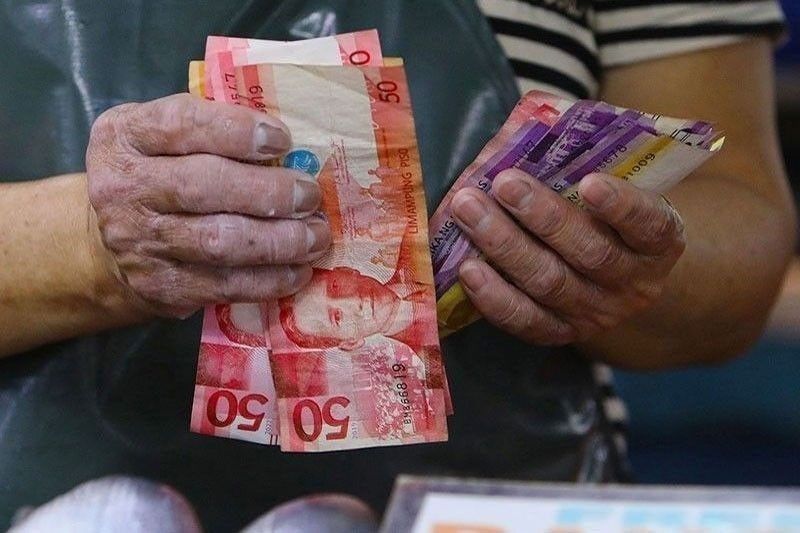
Upgrade to High-Speed Internet for only ₱1499/month!
Enjoy up to 100 Mbps fiber broadband, perfect for browsing, streaming, and gaming.
Visit Suniway.ph to learn
Louella Desiderio - The Philippine Star
April 2, 2025 | 12:00am
MANILA, Philippines — Corruption has been identified as one of the barriers to trade and investment confronting United States firms doing business in the Philippines, according to the Office of the US Trade Representative (USTR).
In its 2025 National Trade Estimate (NTE) report to US President Donald Trump and Congress, the USTR said corruption is a pervasive and longstanding problem that US businesses have to deal with in the Philippines.
“National and local government agencies, particularly the Bureau of Customs, are beset with various corruption issues. Both foreign and domestic investors have expressed concerns about the lack of transparency in judicial and regulator processes,” the USTR said.
Although the Bureau of Customs launched a modernization program in 2021 to address customs and corruption concerns, the USTR said there are still widespread reports of corruption and irregularities in customs processing, including undue and costly delays, irregularities in the valuation process, 100 percent inspection and testing of some products and inconsistent assessment of fees.
The USTR said that stakeholders have raised concern over the Philippines’ pre-border technical verification (PTV) and cross-border electronic invoicing (CEI), which are intended to streamline inspections and monitor international trade transactions.
“Stakeholders have expressed concerns about the PTV, citing increased inspection and logistics costs, delayed movement of goods, duplication of other importation processes, susceptibility of inspection agents to corruption in the country of export and its deviation from standard industry practices,” the USTR said.
In addition, the USTR said the implementation of PTV as an integrated package with CEI, which is focused on goods often misdeclared to avoid duties and taxes, shows that the Philippines may be intending to utilize pre-shipment inspection for tariff classification or customs valuation, raising concerns under Article 10.5 of the World Trade Organization Trade Facilitation Agreement, which discourages the use of pre-shipment inspections.
Biased procurement
The USTR also said the Philippine government’s procurement system generally favors Philippine nationals or Filipino-controlled enterprises.
“While the Philippines passed amendments to the Government Procurement Reform Act on July 20, 2024 which are intended to improve the public bidding process, government agencies are required to prioritize and favor Philippine products and services throughout all stages of the procurement process, including raw materials, ingredients, supplies and fixtures,” the USTR said.
It said that concerns over intellectual property protection and enforcement remain despite the Philippines’ removal from the Watch List in the 2014 Special 301 Report, which identifies countries with intellectual property problems.
“Stakeholders report issues with online piracy and sales of counterfeit goods, including apparel, shoes, watches, jewelry, perfume and electronics. Such counterfeiting and piracy concerns led to the continued inclusion of Manila’s Greenhills Shopping Center in the 2024 Review of Notorious Markets for Counterfeiting and Piracy (Notorious Markets List),” the USTR said.
Moreover, prosecution and conviction of cases are slow, the USTR said.
Other barriers cited in the report are sanitary and phytosanitary measures in agriculture and foreign ownership limits in certain sectors.
This year’s NTE report was released ahead of the April 2 unveiling of Trump’s reciprocal tariffs plan targeting all countries, supposedly to address trade imbalances.
Tariff war downplayed
Last week, Trade Secretary Cristina Roque said the looming reciprocal tariffs are unlikely to have a significant impact on Philippine trade.
“We feel that we will not be affected. We’re allies. And also our trade deficit with them is very minimal. So it’s not something that we can worry about for now,” she said.
While it is business as usual for now, she said she had asked for a meeting with her US counterparts to discuss trade matters.
Rizal Commercial Banking Corp. chief economist Michael Ricafort said in an email that the proposed reciprocal tariffs and other protectionist policies could lead to higher US import tariffs and eventually retaliatory trade wars, which could slow down global trade and world economic growth.
As the Philippines does not have a free trade agreement (FTA) with the US, he said the US is likely to match tariffs on its exports.
“In view of these risks, there is a need to further diversify the Philippine export markets to include more goods or products and also more export destinations, especially in reducing reliance on the US as the biggest market for Philippine exports,” he said.

 2 months ago
17
2 months ago
17



